GK Cloud Solutions provides professional IT Training on Google Cloud Courses focusing on bridging the huge skill gap required by IT Industry professionals.
Don't wanna be here? Send us removal request.
Text
Anthos Hybrid Cloud | Anthos Google Cloud |GK Cloud Solutions
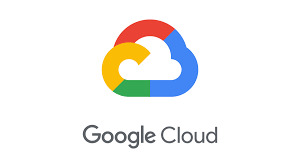
Course Description
This two-day instructor-led Anthos Hybrid Cloud course prepares students to modernize, manage, and observe their applications using Kubernetes whether the application is deployed on-premises or on Google Cloud Platform (GCP). Through presentations, and hands-on labs, participants explore and deploy using Kubernetes Engine (GKE), GKE Connect, Istio service mesh and Anthos Config Management capabilities that enable operators to work with modern applications even when split among multiple clusters hosted by multiple providers, or on-premises.
Objectives
Connect and manage Anthos GKE clusters from GCP Console whether clusters are part of Anthos on Google Cloud or Anthos deployed on VMware.
Understand how service mesh proxies are installed, configured and managed.
Configure centralized logging, monitoring, tracing, and service visualizations wherever the Anthos GKE clusters are hosted.
Understand and configure fine-grained traffic management.
Use service mesh security features for service-service authentication, user authentication, and policy-based service authorization.
Install a multi-service application spanning multiple clusters in a hybrid environment. Understand how services communicate across clusters.
Migrate services between clusters.
Install Anthos Config Management, use it to enforce policies, and explain how it can be used across multiple clusters.
Audience
This class is primarily intended for the following participants:
Technical employees using GCP, including customer companies, partners and system integrators: deployment engineers, cloud architects, cloud administrators, system engineers, and SysOps / DevOps engineers.
Individuals using GCP to create, integrate, or modernize solutions using secure, scalable microservices architectures in hybrid environments.
Prerequisites
To get the most out of this Anthos Google Cloud course, participants should have completed the Architecting with Google Kubernetes Engine course and its prerequisites, or have equivalent experience.
Content
The course includes presentations and hands-on labs.
Module 1: Anthos Overview
Module 2: Managing Hybrid Clusters using Kubernetes Engine
Module 3: Introduction to Service Mesh
Module 4: Observing Services using Service Mesh Adapters
Module 5: Managing Traffic Routing with Service Mesh
Module 6: Managing Policies and Security with Service Mesh
Module 7: Managing Policies using Anthos Config Management
Module 8: Configuring Anthos GKE for Multi-Cluster Operation
For more IT Training on Google Cloud Courses visit GK Cloud Solutions.
#cloudcomputing#google#cloud#googlecloud#gcp#googlecloudplatform#googlecloudcertified#gcpcloud#googlecloudpartners#cloudcertification#cloudtraining#googlecloudtraining#googlecloudplatformgcp#googlecloudpartner#gcloud#googlecloudcommunity#googlecloudcertification#anthosgooglecloud#anthoshybridcloud#googleanthos#anthosgoogle#architectinghybridcloudinfrastructurewithanthos#googlecloudplatformanthos#googlecloudanthos#anthos
0 notes
Text
GKE Getting Started | Google Kubernetes Engine | GKCS
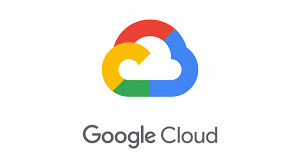
Course Description
This GKE Getting Started course will teach you how to containerize workloads in Docker containers, deploy them to Kubernetes clusters provided by Google Kubernetes Engine, and scale those workloads to handle increased traffic. You'll also learn how to continuously deploy new code in a Kubernetes cluster to provide application updates.
Objectives
At the end of the course, you will be able to:
Understand how software containers work.
Understand the architecture of Kubernetes.
Understand the architecture of Google Cloud.
Understand how pod networking works in Google Kubernetes Engine.
Create and manage Kubernetes Engine clusters using the Google Cloud Console and gcloud/kubectl commands.
Audience
This class is intended for the following participants:
Application developers, Cloud Solutions Architects, DevOps Engineers, IT managers
Individuals using Google Cloud Platform to create new solutions or to integrate existing systems, application environments, and infrastructure with the Google Cloud Platform
Prerequisites
To get the most out of this course, participants should have:
Basic proficiency with command-line tools and Linux operating system environments, as well as Web server
Systems Operations experience including deploying and managing applications, either on-premises or in a public cloud environment
Content
Module 1: Introduction to Google Cloud
Module 2: Containers and Kubernetes in Google Cloud
Module 3: Kubernetes Architecture
Module 4: Continuous Deployment with Jenkins
For more IT Training on Google Cloud Courses visit GK Cloud Solutions.
#cloudcomputing#google#cloud#googlecloud#gcp#googlecloudplatform#googlecloudcertified#gcpcloud#googlecloudpartners#cloudcertification#cloudtraining#googlecloudtraining#googlecloudplatformgcp#googlecloudpartner#gcloud#googlecloudcommunity#googlecloudcertification#googlekubernetesengine#gkegettingstarted#gettingstartedwithgke#googlecloudkubernetes#gettingstartedwithgooglekubernetesengine#googlecloudplatformkubernetes#googlekubernetescourse#googlekubernetestraining
0 notes
Text
Getting Started with GKE | Google Kubernetes Engine | GKCS
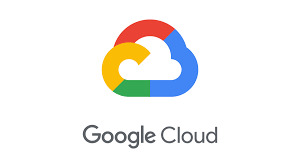
Course Description
This Getting Started with GKE course will teach you how to containerize workloads in Docker containers, deploy them to Kubernetes clusters provided by Google Kubernetes Engine, and scale those workloads to handle increased traffic. You'll also learn how to continuously deploy new code in a Kubernetes cluster to provide application updates.
Objectives
At the end of the course, you will be able to:
Understand how software containers work.
Understand the architecture of Kubernetes.
Understand the architecture of Google Cloud.
Understand how pod networking works in Google Kubernetes Engine.
Create and manage Kubernetes Engine clusters using the Google Cloud Console and gcloud/kubectl commands.
Audience
This class is intended for the following participants:
Application developers, Cloud Solutions Architects, DevOps Engineers, IT managers
Individuals using Google Cloud Platform to create new solutions or to integrate existing systems, application environments, and infrastructure with the Google Cloud Platform
Prerequisites
To get the most out of this course, participants should have:
Basic proficiency with command-line tools and Linux operating system environments, as well as Web server
Systems Operations experience including deploying and managing applications, either on-premises or in a public cloud environment
Content
Module 1: Introduction to Google Cloud
Module 2: Containers and Kubernetes in Google Cloud
Module 3: Kubernetes Architecture
Module 4: Continuous Deployment with Jenkins
For more IT Training on Google Cloud Courses visit GK Cloud Solutions.
#cloudcomputing#google#cloud#googlecloud#gcp#googlecloudplatform#googlecloudcertified#gcpcloud#googlecloudpartners#cloudcertification#cloudtraining#googlecloudtraining#googlecloudplatformgcp#googlecloudpartner#gcloud#googlecloudcommunity#googlecloudcertification#googlekubernetesengine#gkegettingstarted#gettingstartedwithgke#googlecloudkubernetes#gettingstartedwithgooglekubernetesengine#googlecloudplatformkubernetes#googlekubernetescourse#googlekubernetestraining#kubernetes#googlekubernetes
0 notes
Text
Architecting with Google Kubernetes Engine |GK Cloud Solutions
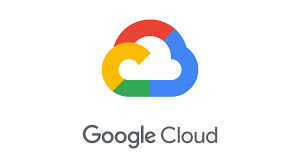
Course Description
Learn how to deploy and manage containerized applications on Google Kubernetes Engine (GKE). Learn how to use other tools on Google Cloud that interact with GKE deployments. This Architecting with Google Kubernetes Engine course features a combination of lectures, demos, and hands-on labs to help you explore and deploy solution elements—including infrastructure components like pods, containers, deployments, and services—along with networks and application services. You'll also learn how to deploy practical solutions, including security and access management, resource management, and resource monitoring.
Objectives
Understand how software containers work.
Understand the architecture of Kubernetes.
Understand the architecture of Google Cloud.
Understand how pod networking works in Google Kubernetes Engine.
Create and manage Kubernetes Engine clusters using the Google Cloud Console and gcloud/kubectl commands.
Launch, roll back, and expose jobs in Kubernetes.
Manage access control using Kubernetes RBAC and IAM.
Manage pod security policies and network policies.
Use Secrets and ConfigMaps to isolate security credentials and configuration artifacts.
Understand Google Cloud choices for managed storage services.
Monitor applications running in Google Kubernetes Engine.
Audience
This class is intended for the following:
Cloud architects, administrators, and SysOps/DevOps personnel Individuals using Google Cloud Platform to create new solutions or to integrate existing systems, application environments, and infrastructure with the Google Cloud Platform.
Prerequisites
To get the most out of this course, participants should have:
Completed Google Cloud Platform Fundamentals: Core Infrastructure or have equivalent experience
Basic proficiency with command-line tools and Linux operating system environments
Content
Module 1: Introducing Google Cloud Platform
Module 2: Containers and Kubernetes in GCP
Module 3: Kubernetes Architecture
Module 4: Kubernetes Operations
Module 5: Deployments, Jobs, and Scaling
Module 6: GKE Networking
Module 7: Persistent Data and Storage
Module 8: Access Control and Security in Kubernetes and Kubernetes Engine
Module 9: Logging and Monitoring
Module 10: Using GCP Managed Storage Services from Kubernetes Applications
Module 11: Logging and Monitoring
For more IT Training on Google Cloud Courses visit GK Cloud Solutions.
#cloudcomputing#google#cloud#googlecloud#gcp#googlecloudplatform#googlecloudcertified#gcpcloud#googlecloudpartners#cloudcertification#cloudtraining#googlecloudtraining#googlecloudplatformgcp#googlecloudpartner#gcloud#googlecloudcommunity#googlecloudcertification#architectingwithgooglekubernetesengine#architectingwithgooglekubernetesenginespecialization
0 notes
Text
Networking in Google Cloud | Google Cloud Networking | GKCS
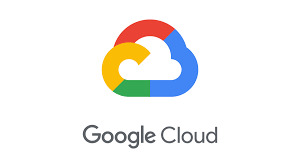
Course Description
This two-day instructor-led class gives participants broad study of networking options on Google Cloud Platform. Through a combination of presentations, demonstrations, and hands-on labs, participants explore and deploy GCP networking technologies, such as Google Virtual Private Cloud (VPC) networks, subnets, firewalls; interconnection among networks; load balancing; Cloud DNS; Cloud CDN; Cloud NAT. The Networking in Google Cloud course will also cover common network design patterns and automated deployment using Deployment Manager or Terraform.
Objectives
This Google Cloud Networking course teaches participants the following skills:
Understand how software containers work Understand the architecture of Kubernetes
Understand the architecture of Google Cloud Platform Understand how pod networking works in Kubernetes Engine
Create and manage Kubernetes Engine clusters using the GCP Console and gcloud/ kubectl commands Launch, roll back and expose jobs in Kubernetes
Manage access control using Kubernetes RBAC and Google Cloud IAM Managing pod security policies and network policies Using Secrets and ConfigMaps to isolate security credentials and configuration artifacts
Choose among and use Google Cloud Platform storage options: Google Cloud Storage, Google Cloud SQL, Google Cloud Bigtable, and Google Cloud Datastore
Audience
This class is intended for network engineers and network admins that are either using Google Cloud Platform or are planning to do so. The class is also for individuals that want to be exposed to software-defined networking solutions in the cloud.
Prerequisites
Familiarity with the Linux command line, web servers, and text editors.
Content
This course teaches participants the following skills:
Module 1: Google Cloud VPC Networking Fundamentals
Module 2: Controlling Access to VPC Networks
Module 3: Sharing Networks across Projects
Module 4: Load Balancing
Module 5: Hybrid Connectivity
Module 6: Networking Pricing and Billing
Module 7: Network Design and Deployment
Module 8: Network Monitoring and Troubleshooting
For more IT Training on Google Cloud Courses visit GK Cloud Solutions.
#cloudcomputing#google#cloud#googlecloud#gcp#googlecloudplatform#googlecloudcertified#gcpcloud#googlecloudpartners#cloudcertification#cloudtraining#googlecloudtraining#googlecloudplatformgcp#googlecloudpartner#gcloud#googlecloudcommunity#googlecloudcertification#googlecloudnetworking#networkingingooglecloud#googlecloudvpn#networkingingooglecloudplatform#googlecloudvpc#gcpcloudvpn#googlecloudnetworkengineer#cloudvpngcp#vpcingooglecloud#googlecloudplatformnetworking#googlecloudprofessionalnetworkengineer#googlecloudcertifiednetworkengineer
0 notes
Text
Developing Applications with Google Cloud Platform | GKCS
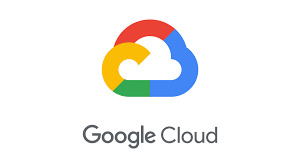
Course Description
In this Developing Applications with Google Cloud Platform course, application developers learn how to design, develop, and deploy applications that seamlessly integrate components from the Google Cloud ecosystem. Through a combination of presentations, demos, and hands-on labs, participants learn how to use GCP services and pre-trained machine learning APIs to build secure, scalable, and intelligent cloud-native applications.
Objectives
Application developers who want to build cloud-native applications or redesign existing applications that will run on Google Cloud Platform.
This course teaches participants the following skills:
Use best practices for application development.
Choose the appropriate data storage option for application data.
Implement federated identity management.
Develop loosely coupled application components or microservices.
Integrate application components and data sources.
Debug, trace, and monitor applications.
Perform repeatable deployments with containers and deployment services.
Choose the appropriate application runtime environment; use Google Container.
Engine as a runtime environment and later switch to a no-ops solution with Google App Engine Flex.
Audience
This class is intended for the following:
Application developers who want to build cloud-native applications or redesign existing applications that will run on Google Cloud Platform
Prerequisites
To get the most benefit from this course, participants should have the following prerequisites:
Completed Google Cloud Platform Fundamentals or have equivalent experience
Working knowledge of Node.js
Basic proficiency with command line tools and Linux operating system environments
Content
The course includes presentations, demonstrations, and hands-on labs.
1. Best Practices for Application Development
2. Google Cloud Client Libraries, Google Cloud SDK, and Google Firebase SDK
3. Overview of Data Storage Options
4. Best Practices for Using Cloud Datastore
5. Performing Operations on Buckets and Objects
6. Best Practices for Using Cloud Storage
7. Securing Your Application
8. Using Google Cloud Pub/Sub to Integrate Components of Your Application
9. Adding Intelligence to Your Application
10. Using Cloud Functions for Event-Driven Processing
11. Managing APIs with Google Cloud Endpoints
12. Cloud Deploying an Application by Using Google Cloud Container Builder, Google Cloud Container Registry, and Google Deployment Manager
13. Execution Environments for Your Application
14. Debugging, Monitoring, and Tuning Performance by Using Google Stackdriver
For more IT Training on Google Cloud Courses visit GK Cloud Solutions.
#cloudcomputing#google#cloud#googlecloud#gcp#googlecloudplatform#googlecloudcertified#gcpcloud#googlecloudpartners#cloudcertification#cloudtraining#googlecloudtraining#googlecloudplatformgcp#googlecloudpartner#gcloud#googlecloudcommunity#googlecloudcertification#developingapplicationswithgooglecloudplatform#googlecloudapplicationdevelopment#googlecloudmobileappdevelopment#developingapplicationswithgooglecloudplatformspecialization#googlecloudappdevelopment#appenginelocaldevelopment#googlecloudplatformmobileapp#googleappenginedevelopment#googlecloudplatformfordevelopers#googleappdevelopercourse
0 notes
Text
Architecting with Google Compute Engine | GK Cloud Solutions

Course Description
This three-day instructor-led class introduces participants to the comprehensive and flexible infrastructure and platform services provided by Google Cloud Platform, with a focus on Compute Engine. Through a combination of presentations, demos, and hands-on labs, participants explore and deploy solution elements, including infrastructure components such as networks, systems, and application services. This Architecting with Google Compute Engine course also covers deploying practical solutions including securely interconnecting networks, customer-supplied encryption keys, security and access management, quotas and billing, and resource monitoring.
Objectives
Configure VPC networks and virtual machines
Administer, Identity and Access Management for resources
Implement data storage services in GCP
Manage and examine billing of GCP resources
Monitor resources using Stackdriver services
Connect your infrastructure to GCP
Configure load balancers and autoscaling for VM instances
Automate the deployment of GCP infrastructure services
Leverage managed services in GCP
Audience
Cloud Solutions Architects, DevOps Engineers Individuals using Google Cloud Platform to create new solutions or to integrate existing systems, application environments, and infrastructure, with a focus on Compute Engine.
Prerequisites
Completion of Google Cloud Platform Fundamentals or equivalent experience
Basic proficiency with command-line tools and Linux operating system environments
Systems operations experience, including deploying and managing applications, either on-premises or in a public cloud environment
Content
The course includes presentations, demonstrations, and hands-on labs.
Module 1: Introduction to Google Cloud Platform
Module 2: Virtual Networks
Module 3: Virtual Machines
Module 4: Cloud IAM
Module 5: Storage and Database Services
Module 6: Resource Management
Module 7: Resource Monitoring
Module 8: Interconnecting Networks
Module 9: Load Balancing and Autoscaling
Module 10: Infrastructure Automation
Module 11: Managed Services
For more IT Training on Google Cloud Courses visit GK Cloud Solutions.
#cloudcomputing#google#cloud#googlecloud#gcp#googlecloudplatform#googlecloudcertified#gcpcloud#googlecloudpartners#cloudcertification#cloudtraining#googlecloudtraining#googlecloudplatformgcp#googlecloudpartner#gcloud#googlecloudcommunity#googlecloudcertification#architectingwithgooglecomputeengine#googlecomputeengine#googlecloudcomputeengine#architectingwithgooglecomputeenginespecialization#googlecomputeenginearchitecture
0 notes
Text
Data Engineering on GCP | Google Cloud Data Engineer | GKCS
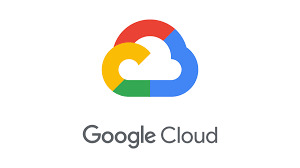
Course Description
This four-day instructor-led class provides participants a hands-on introduction to designing and building data processing systems on Google Cloud Platform. Through a combination of presentations, demos, and hand-on labs, participants will learn how to design data processing systems, build end-to-end data pipelines, analyze data and carry out machine learning. The Data Engineering on GCP course covers structured, unstructured, and streaming data.
Objectives
This Google Cloud Data Engineer course teaches participants the following skills:
Design and build data processing systems on Google Cloud Platform
Process batch and streaming data by implementing autoscaling data pipelines on Cloud Dataflow
Derive business insights from extremely large
datasets using Google BigQuery
Train, evaluate and predict using machine learning models using Tensorflow and Cloud ML
Leverage unstructured data using Spark and ML APIs on Cloud Dataproc
Enable instant insights from streaming data
Audience
This class is intended for the following:
Extracting, loading, transforming, cleaning, and validating data
Designing pipelines and architectures for data processing
Creating and maintaining machine learning and statistical models
Querying datasets, visualizing query results and creating reports
Prerequisites
To get the most of out of this course, participants should have:
Completed Google Cloud Fundamentals- Big Data and Machine Learning course #8325 OR have equivalent experience
Basic proficiency �� with common query language such as SQL
Experience with data modeling, extract, transform, load activities
Developing applications using a common programming language such Python
Familiarity with Machine Learning and/or statistics
Content
The course includes presentations, demonstrations, and hands-on labs.
Leveraging Unstructured Data with Cloud Dataproc on Google Cloud Platform
Module 1: Google Cloud Dataproc Overview
Module 2: Running Dataproc Jobs
Module 3: Integrating Dataproc with Google Cloud Platform
Module 4: Making Sense of Unstructured Data with Google’s Machine Learning APIs
Module 5: Serverless data analysis with BigQuery
Module 6: Serverless, autoscaling data pipelines with Dataflow
Module 7: Getting started with Machine Learning
Module 8: Building ML models with Tensorflow
Module 9: Scaling ML models with CloudML
Module 10: Feature Engineering
Module 11: Architecture of streaming analytics pipelines
Module 12: Ingesting Variable Volumes
Module 13: Implementing streaming pipelines
Module 14: Streaming analytics and dashboards
Module 15: High throughput and low-latency with Bigtable
For more IT Training on Google Cloud Courses visit GK Cloud Solutions.
#cloudcomputing#google#cloud#googlecloud#gcp#googlecloudplatform#googlecloudcertified#gcpcloud#googlecloudpartners#cloudcertification#cloudtraining#googlecloudtraining#googlecloudplatformgcp#googlecloudpartner#gcloud#googlecloudcommunity#googlecloudcertification#googleclouddataengineer#dataengineeringongcp#gcpdataengineer#googlecloudprofessionaldataengineer#dataengineeringwithgooglecloudprofessionalcertificate#dataengineeringongooglecloudplatform#googlecloudcertifiedprofessionaldataengineer#dataengineeringwithgooglecloud#googlecloudcertifieddataengineer#dataengineergooglecloud#googlecloudplatformdataengineer#googledataengineercourse#googlecloudprofessionaldataengineercertified
0 notes
Text
GCP Big Data and Machine Learning Fundamentals | GKCS
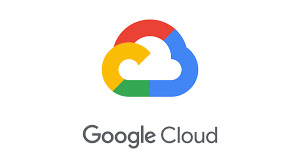
Course Description
This one-day instructor-led course introduces participants to the big data capabilities of Google Cloud Platform. Through a combination of presentations, demos, and hands-on labs, participants get an overview of the Google Cloud platform and a detailed view of the data processing and machine learning capabilities. This GCP Big Data and Machine Learning Fundamentals course showcases the ease, flexibility, and power of big data solutions on Google Cloud Platform.
Objectives
This course teaches participants the following skills:
Identify the purpose and value of the key Big Data and Machine Learning products in the Google Cloud Platform.
Use Cloud SQL and Cloud Dataproc to migrate existing MySQL and Hadoop/Pig/Spark/Hive workloads to Google Cloud Platform.
Employ BigQuery and Cloud Datalab to carry out interactive data analysis.
Train and use a neural network using TensorFlow.
Employ ML APIs.
Choose between different data processing products on the Google Cloud Platform.
Interact with Google Cloud Platform services
Audience
This class is intended for the following:
Data analysts, Data scientists, Business analysts getting started with Google Cloud Platform.
Individuals responsible for designing pipelines and architectures for data processing, creating and maintaining machine learning and statistical models, querying datasets, visualizing query results and creating reports.
Executives and IT decision makers evaluating Google Cloud Platform for use by data scientists.
Prerequisites
To get the most of out of this course, participants should have:
Basic proficiency with common query language such as SQL
Experience with data modeling, extract, transform, load activities
Developing applications using a common programming language such Python
Familiarity with Machine Learning and/or statistic
Content
The course includes presentations, demonstrations, and hands-on labs.
Module 1: Introducing Google Cloud Platform
Module 2: Compute and Storage Fundamentals
Module 3: Data Analytics on the Cloud
Module 4: Scaling Data Analysis
Module 5: Machine Learning
Module 6: Data Processing Architectures
Module 7: Summary
For more IT Training on Google Cloud Courses visit GK Cloud Solutions.
#cloudcomputing#google#cloud#googlecloud#gcp#googlecloudplatform#googlecloudcertified#gcpcloud#googlecloudpartners#cloudcertification#cloudtraining#googlecloudtraining#googlecloudplatformgcp#googlecloudpartner#gcloud#googlecloudcommunity#googlecloudcertification#gcpbigdataandmachinelearningfundamentals#googlecloudfundamentalsbigdataandmachinelearning#googlecloudplatformbigdataandmachinelearningfundamentals#googlecloudplatformbigdata&machinelearningfundamentals#googlecloudplatformfundamentalsbigdata&machinelearning#googlecloudbigdataandmachinelearning
0 notes
Text
Google Cloud Fundamentals | GCP Core Infrastructure | GKCS
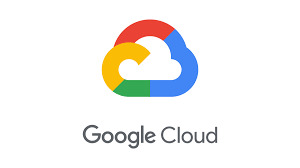
Course Description
This one-day instructor-led class provides an overview of Google Cloud Platform products and services. Through a combination of presentations, demos, and hands-on labs, participants learn the value of Google Cloud Platform and how to incorporate cloud-based solutions into business strategies.
Objectives
This Google Cloud Fundamentals course teaches participants the following skills:
Identify the purpose and value of Google Cloud Platform products and services
Interact with Google Cloud Platform services
Describe ways in which customers have used Google Cloud Platform
Choose among and use application deployment environments on Google Cloud Platform: Google App Engine, Google Kubernetes Engine, and Google Compute Engine
Choose among and use Google Cloud Platform storage options: Google Cloud Storage, Google Cloud SQL, Google Cloud Bigtable, and Google Cloud Datastore
Make basic use of BigQuery, Google’s managed data warehouse for analytics
Make basic use of Cloud Deployment Manager, Google’s tool for creating and managing cloud resources through templates
Make basic use of Google Stackdriver, Google’s monitoring, logging, and diagnostics system
Audience
This class is intended for the following:
Individuals planning to deploy applications and create application environments on Google Cloud Platform.
Developers, systems operations professionals, and solution architects getting started with Google Cloud Platform.
Executives and business decision makers evaluating the potential of Google Cloud Platform to address their business needs.
Prerequisites
Familiarity with the Linux command line, web servers, and text editors.
Content
The GCP Core Infrastructure course includes presentations, demonstrations, and hands-on labs.
Module 1: Introducing Google Cloud Platform
Module 2: Getting Started with Google Cloud Platform
Module 3: Virtual Machines and Networks in the Cloud
Module 4: Storage in the Cloud
Module 5: Containers in the Cloud
Module 6: Applications in the Cloud
Module 7: Developing, Deploying, and Monitoring in the Cloud
Module 8: Big Data and Machine Learning in the Cloud
For more IT Training on Google Cloud Courses visit GK Cloud Solutions.
#cloudcomputing#google#cloud#googlecloud#gcp#googlecloudplatform#googlecloudcertified#gcpcloud#googlecloudpartners#cloudcertification#cloudtraining#googlecloudtraining#googlecloudplatformgcp#googlecloudpartner#gcloud#googlecloudcommunity#googlecloudcertification#googlecloudfundamentals#gcpfundamentals#gcpcoreinfrastructure#googlecloudplatformfundamentalscoreinfrastructure#gcpfundamentalscoreinfrastructure#googlecloudplatformfundamentalscoreinfrastructurecertification#googlecloudfundamentalscoreinfrastructure#fundamentalsofgooglecloudplatform#googlecloudplatformfundamentals
0 notes
Link
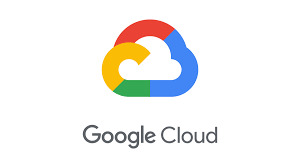
#cloudcomputing#google#cloud#googlecloud#gcp#googlecloudplatform#googlecloudcertified#gcpcloud#googlecloudpartners#cloudcertification#cloudtraining#googlecloudtraining#googlecloudplatformgcp#googlecloudpartner#gcloud#googlecloudcommunity#googlecloudcertification#AnthosGoogleCloud#AnthosHybridCloud#anthos#gcpanthos
0 notes
Link
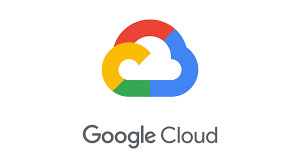
#cloudcomputing#google#cloud#googlecloud#gcp#googlecloudplatform#googlecloudcertified#gcpcloud#googlecloudpartners#cloudcertification#cloudtraining#googlecloudtraining#googlecloudplatformgcp#googlecloudpartner#gcloud#googlecloudcommunity#googlecloudcertification#GoogleKubernetesEngine#GKEGettingStarted#GettingStartedwithGKE#kubernetes#kubernetesengine
0 notes
Link
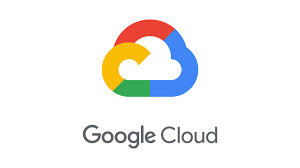
#cloudcomputing#google#cloud#googlecloud#gcp#googlecloudplatform#googlecloudcertified#gcpcloud#googlecloudpartners#cloudcertification#cloudtraining#googlecloudtraining#googlecloudplatformgcp#googlecloudpartner#gcloud#googlecloudcommunity#googlecloudcertification#GoogleKubernetesEngine#GKEGettingStarted#GettingStartedwithGKE#kubernetes#kubernetesengine
0 notes
Link
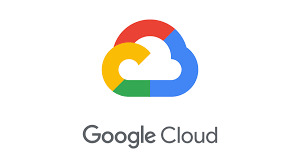
#cloudcomputing#google#cloud#googlecloud#gcp#googlecloudplatform#googlecloudcertified#gcpcloud#googlecloudpartners#cloudcertification#cloudtraining#googlecloudtraining#googlecloudplatformgcp#googlecloudpartner#gcloud#googlecloudcommunity#ArchitectingwithGoogleKubernetesEngine#GoogleKubernetesEngine#kubernetes#kubernetesengine
0 notes
Link
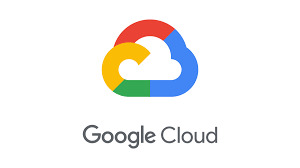
#cloudcomputing#google#cloud#googlecloud#gcp#googlecloudplatform#googlecloudcertified#gcpcloud#googlecloudpartners#cloudcertification#cloudtraining#googlecloudtraining#googlecloudplatformgcp#googlecloudpartner#gcloud#googlecloudcommunity#googlecloudcertification#ArchitectingwithGoogleKubernetesEngine#GoogleKubernetesEngine#kubernetes#kubernetesengine
0 notes
Link
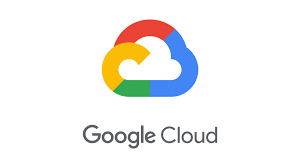
#cloudcomputing#google#cloud#googlecloud#gcp#googlecloudplatform#googlecloudcertified#gcpcloud#googlecloudpartners#cloudcertification#cloudtraining#googlecloudtraining#googlecloudplatformgcp#googlecloudpartner#gcloud#googlecloudcommunity#googlecloudcertification#GoogleCloudNetworking#NetworkinginGoogleCloud#networking
0 notes
Link

#cloudcomputing#google#cloud#googlecloud#gcp#googlecloudplatform#googlecloudcertified#gcpcloud#googlecloudpartners#cloudcertification#cloudtraining#googlecloudtraining#googlecloudplatformgcp#googlecloudpartner#gcloud#googlecloudcommunity#googlecloudcertification#DevelopingApplicationswithGoogleCloudPlatform#application#application development
0 notes